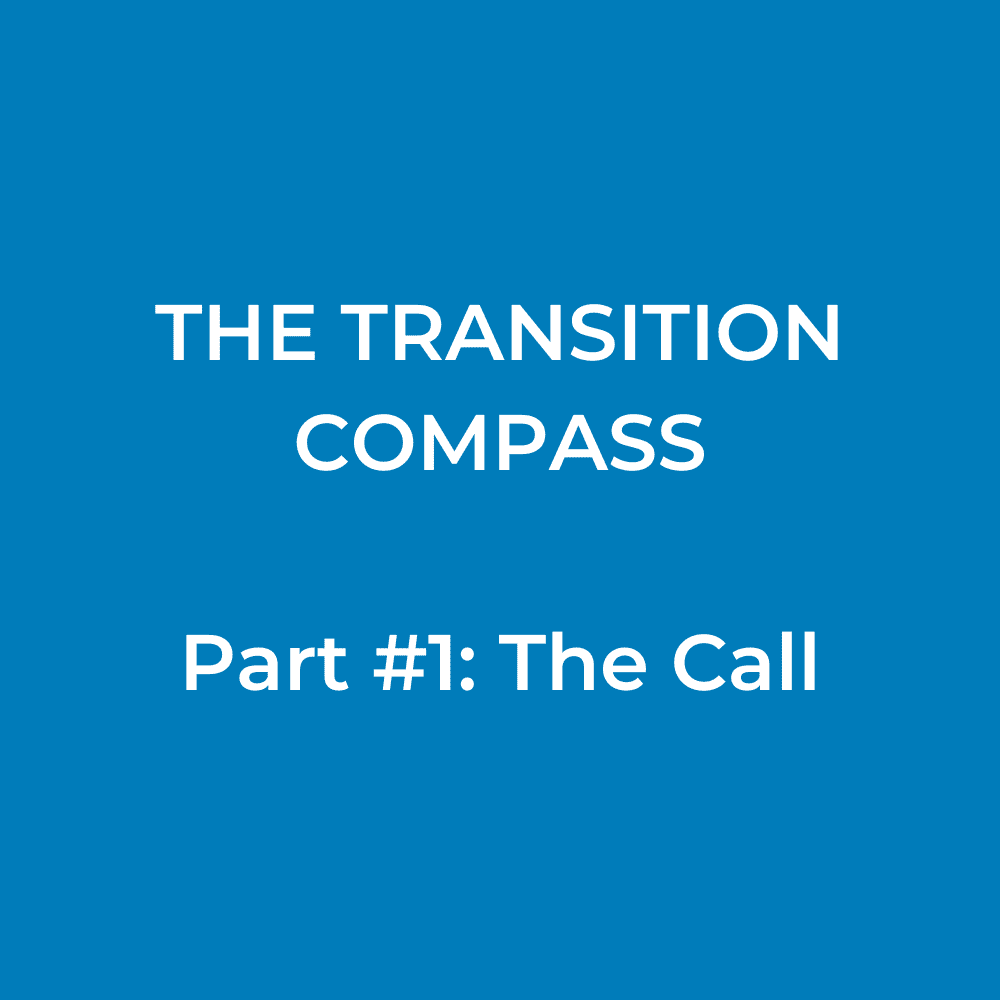
This is the first in a series of six articles on the phases of transition, written alternately by Jan Jacob Stam and Dees van de Hoef.
“How about the planning of our company for next year?”
“Mmmm… I think pretty often about this, but nothing comes out of my hands…”
“For me the same, ideas enough, but I simply don’t put them into action.”
Recognizable?
“So should we sit and make that planning?”
“I feel a pressure to do so too, but somehow it doesn’t make sense. And I even don’t know why it doesn’t make sense.”
This and other symptoms could be a trigger to listen to the call. The call of transition. Transition being the process of being drawn into a next phase of existence.
Basically there are two groups of reasons why a company, an organization, or a person is drawn into transition.
The first group of reasons is that you are outgrowing yourself. Your coat has become too small. The shoes you walk on are too tight. The unused potential is knocking at your door. Producing more of the same is safe but becomes boring. Passion is leaking away. And passion is one of your most valuable drivers. Passion produces energy.
The second group of reasons is related to the changes in the outside world, the market, the (technological) developments, geopolitical situations, society as a whole.
If you don’t listen to the call, you might miss the train of transition and suddenly find yourself as part of history.
One tendency in an organization is to strive for continuity, predictability, and stability. WYSIWYG. We stay with the successful patterns we have. We produce more of the same. Profitable. The plannable future is our friend.
Transition is driven by an evolutionary force. This evolutionary force has a direction. It wants to take us into transition. Push or pull us into the next phase of existence. The sound of this evolutionary force is sometimes like thunder, but mostly a whisper.
Our plannable future and our willpower have a completely different, much louder voice than the subtle sounds either from outside or from within our company or ourselves.
Can we hear these whispers? Can we feel that gentle breeze? Can we see the subtle movements like leaves in fall dancing in the wind?
Can we hear the call? Are we open to hear the call?
We might know or intuitively feel what the consequences of listening will be. We surrender to an adventure where we are not sure to find ourselves at the end. We have to skip “it’ll be alright after all” from our plannable repertoire. For ourselves, for others, and for our company as a whole.
Which signals of this evolutionary force have you sensed, heard, and possibly ignored in the last four weeks? What has kept you awake while you wanted to sleep? Which boredom have you noticed? Which frustration? Which great ideas knocked at your door but you haven’t moved to put them into action?
Agreeing that there have been calls is a first start. Trusting your perception. Trusting your intuition. Trusting your body as a resonating organ about what’s going on. Trusting your mind with its analysis of what you measured and observed.
Allowing the calls to sink in. Having the courage to bring them on the table in team meetings. Even with the risk others can’t hear them yet and declare you crazy or pessimistic.
Starting to listen differently. Stepping aside a little from the clear path of plans and willpower.
And then, what’s next?
But first, we need to make sure we won’t be alone in this adventure. That will be the subject of the next part, the next chapter.
How to become the instrument for organizations, decision-making units, owners, and management to make the call of transition audible, visible, tangible? Check our 4-day intensive ‘Leading and navigating the 6 phases of Transition’ organized in April 2026.